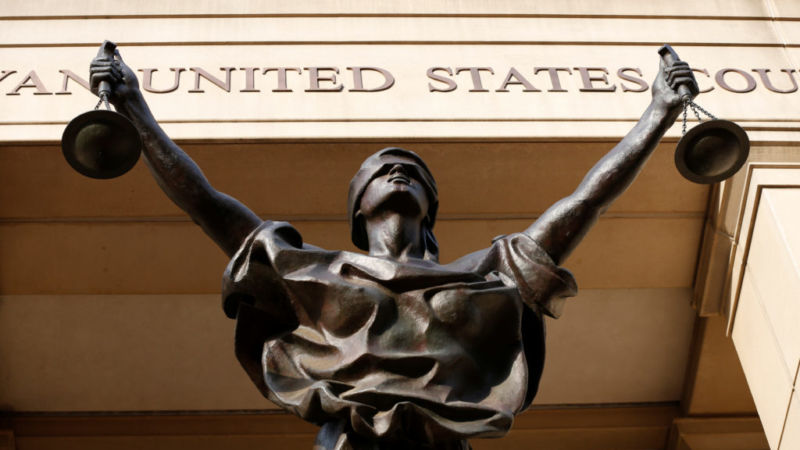U.S. financial regulators accustomed to putting financial firms through stress tests had to prove their own survival skills last year in pursuing an effective enforcement strategy amid the COVID-19 pandemic's disruptions.
This year, however, agencies will be challenged to stay resilient under new leadership and to expand their effort against stimulus-program fraud and compliance failures.
Like the financial services industry they oversee, regulators face continued pandemic-related disruptions at a time when their oversight and enforcement activities are essential to financial system stability. A major factor in this year’s enforcement outlook is the change in presidential administrations from bank-friendly Donald Trump to the new President, Joseph Biden, who helped engineer the sweeping Dodd-Frank regulatory reforms more than a decade ago.
Newly empowered Democrats have made it known they will tighten enforcement in some areas such as discriminatory lending, consumer protection, proprietary-trading limits, and stress tests — areas to which the Trump-led agencies had paid less attention. Under Biden’s pick for Attorney General, Merrick Garland, the U.S. Justice Department is expected to focus on civil rights and white-collar crime, both of which could impact the financial services industry. And Biden’s pick for Securities and Exchange Commission (SEC) chair, Gary Gensler, is well known for his active enforcement during his Obama-era role as head of the Commodity Futures Trading Commission (CFTC).
Yet, some regulatory observers have voiced concern that if the Biden administration pursues aggressive enforcement priorities, it could rattle the still-fragile economy.
Enforcement at the outset
Most finance firms made it through the first year of COVID-19 pandemic relatively well. The prudential regulation and technology-assisted compliance put in place after the last financial crisis have been working as intended, helping stave off the worst effects of an economy in lockdown. And conventional wisdom has been that enforcement is the quickest way for an incoming administration to have an impact on regulated firms, while rulemaking is grindingly slow.
Without major systemic problems, however, there likely will be little urgency to go after noncritical compliance failings in a sector that has managed to respond to clients’ needs for ready funds and essential financial services. There has been little public outrage calling for the kind of regulatory overhaul seen after the financial crisis inherited by the Obama administration, in which Biden served as vice president.
Furthermore, the digital tools in which financial firms and regulators invested during the post-financial crisis compliance push have played a critical role when offices emptied out. Those can both help firms improve their compliance processes and help regulators pinpoint their enforcement activities.
“The future arrived early,” said consulting firm Deloitte in a year-end report on the state of the financial services industry. This digital transformation will help U.S. regulators examining the data trail created in 2020 and in the months ahead for compliance failures obscured by the financial sector’s relative stability.
As one bank regulator commented: “The kind of disruption we’ve seen over the past year always invites instances of fraud.”
Indeed, fraud cases have risen steadily among certain government stimulus programs, especially the Paycheck Protection Program. And banks that overlooked egregious fraud or allowed irregularities in underwriting that could face enforcement actions. In an effort to ease the regulatory burden on financial service firms trying to cope with the pandemic, the SEC has allowed companies to dispense with some routine reporting duties. However, the agency has begun taking stern actions in cases where material information related to the health crisis went unreported.
Regulatory enforcement could surge
The total number of SEC enforcement cases dropped 17% over the past year; but while pandemic-related difficulties led to a lag, the SEC said, new investigations surged by the end of 2020, foreshadowing an increase in enforcement actions in the year ahead.
“Enforcement has slowed down a bit as people were trying to figure out how to manage things like Zoom testimony, and its credibility, and cases have proceeded slowly,” said Brian Rubin, who tracks enforcement trends as the head of law firm Eversheds Sutherland’s enforcement practice.
A sign of increased activity ahead has also been seen in a surging number of tips and complaints, which hit the highest level ever at the SEC and the CFTC, which reported a 126% rise. The pandemic also fueled a rise in whistleblowing claims, which the SEC said were made easier for remote staff working in the privacy of their homes.
During the Trump administration, the president had opposed large settlements with firms and called for a shift in focus to retail fraud and cases against individuals. Nevertheless, the aggregate numbers shifted little, and the most recent year’s SEC fines showed an even higher share of the total penalties coming from big-dollar cases, with 80% of fines generated from just 5% of cases, a higher proportion than during the Obama administration. Further, a recent wave of large cases settled by the Office of the Comptroller of the Currency lifted its enforcement tally to the highest in the last 10 years, including a $400 million settlement with Citigroup over risk control failures.
While those actions were taken during the Trump administration, it essentially showed the role of permanent enforcement staff doing their jobs Even so, some changes are likely under the new Biden administration. Biden has made the racial wealth gap a major political focus, whereas under Trump’s leadership, the Consumer Financial Protection Bureau ceased actively pursuing cases of discriminatory lending. The effort to root out racial discrimination in housing will likely carry over into more scrutiny of disparate treatment of minorities in loan forbearance and other parts of the pandemic recovery effort.
Even some bankers have called for stronger action on bias in home lending. JPMorgan has jumped on board the effort, calling for “an inclusive recovery” that could include enforcement actions against those that stand in its way.








